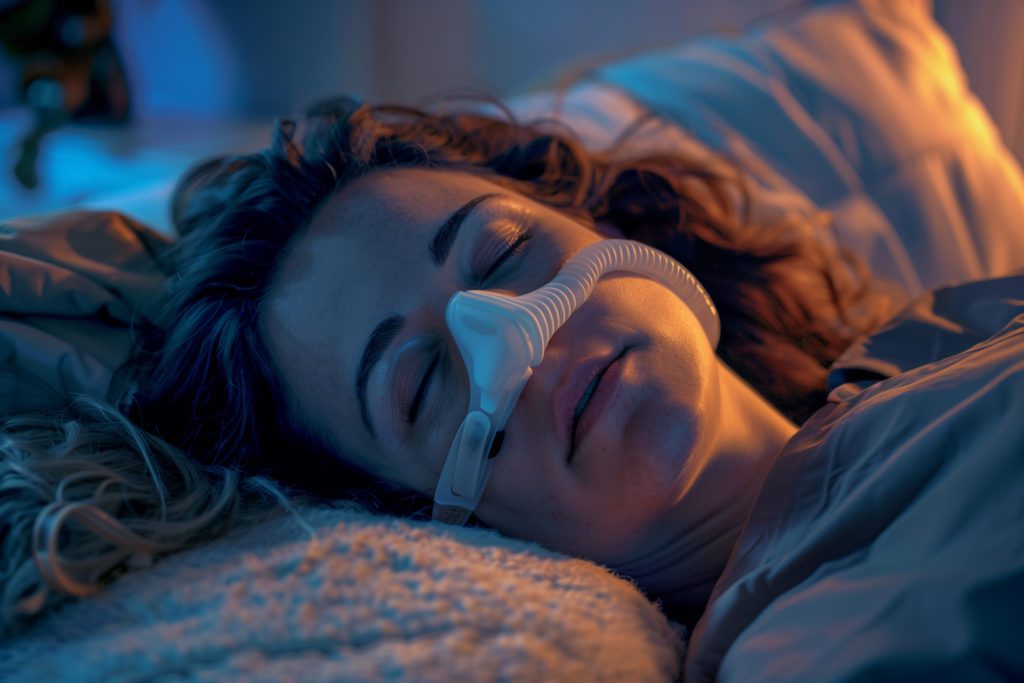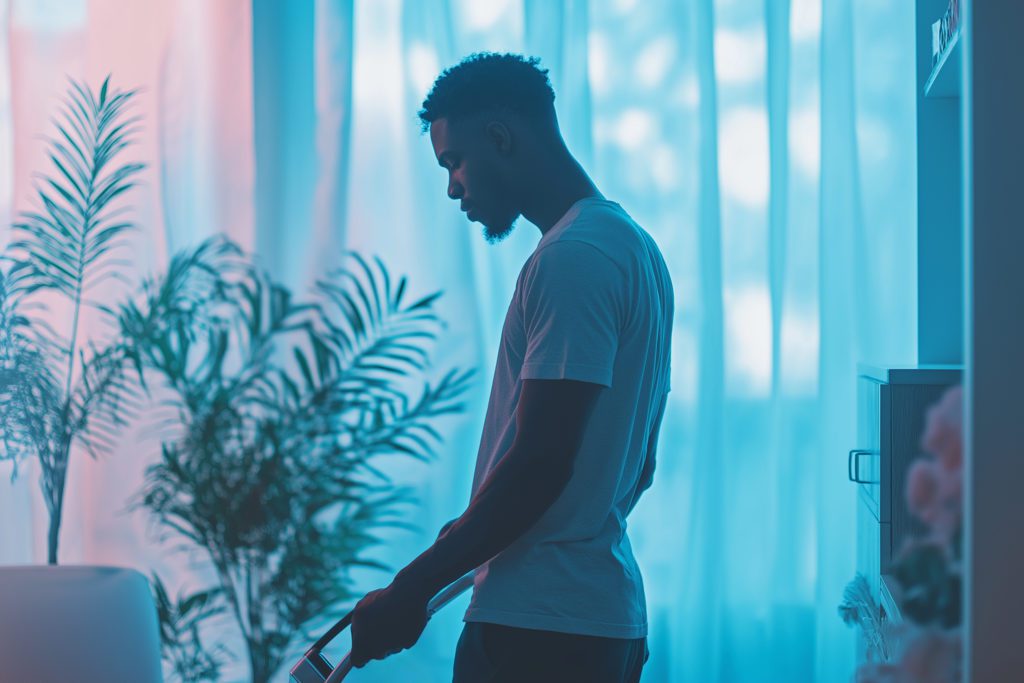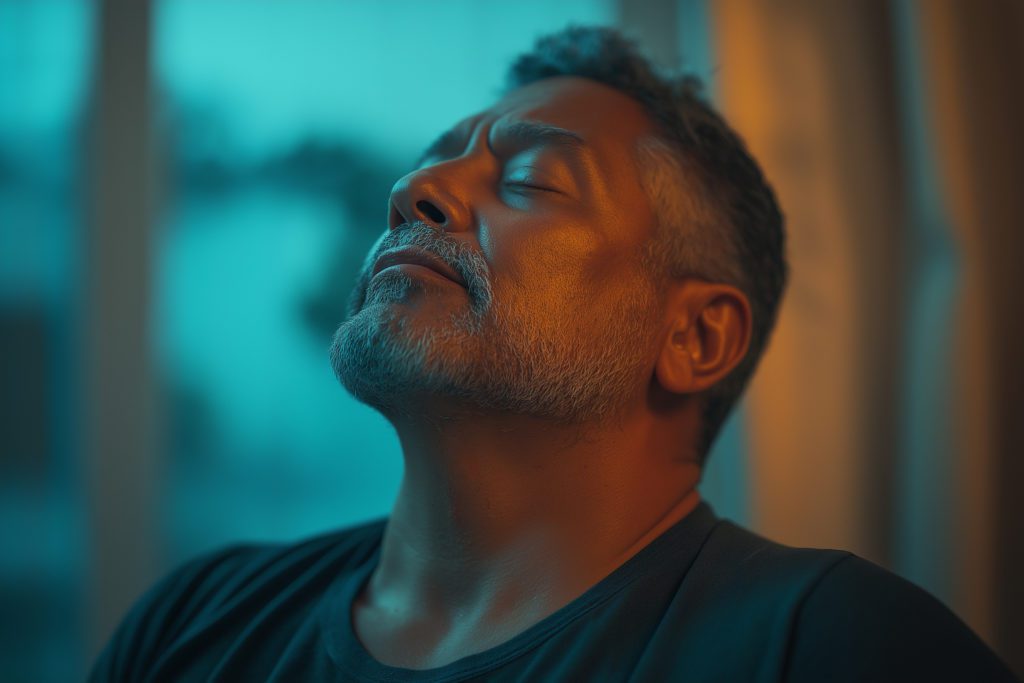
When to See a Sleep Specialist
- 5 Telltale Signs
Struggle no more with sleep issues. Uncover when to turn to a sleep specialist for expert advice and treatment options to ensure restful nights.

Helping you decide when it’s time to consult an expert
Tossing and turning, counting sheep, or being jolted awake by a dream where you’re inexplicably late for an important meeting—sound familiar? You're not alone. Many of us struggle to find that elusive state of restful sleep, a challenge that often goes beyond the occasional bad night.
If you find yourself regularly staring at the ceiling, it might be time to get the experts in. This post will guide you through recognizing when to see a sleep specialist, what a sleep specialist does, and how to prepare for your appointment, with the goal of achieving the peaceful slumber you deserve.
Recognizing when to see a sleep specialist
When sleepless nights become the norm rather than the exception, it's a signal your body's nightly reboot isn't going as planned. Persistent sleep issues that disrupt your daily life are a clear sign professional insight might just be the remedy you need. Can you relate to some of the signs?
- You're always tossing and turning
If every night feels like a battle to find the perfect sleep position, and you still wake up feeling like you've run a marathon, insomnia might be your unwelcome bedfellow. Especially if this dance continues for weeks on end, a sleep specialist could help choreograph a better night's rest. - You regularly snore (badly!)
It's one thing to snore softly; it's another to sound like a chainsaw. If your snoring is loud enough to keep the whole house awake or comes with gasping breaths, you might be dealing with sleep apnea. This condition doesn't just disrupt your sleep—it could threaten your health. - You're always nodding off in the day
Finding yourself dozing off during meetings or while watching TV isn't just about being bored. Excessive daytime sleepiness can signal underlying conditions like narcolepsy or sleep apnea, making a visit to a sleep specialist worth considering. - Your legs are restless at night
That creepy-crawly feeling in your legs, compelling you to move them constantly, might be restless legs syndrome. It's not just annoying; it can seriously hinder your ability to fall asleep and stay that way through the night. - Life feels like a daze
When poor sleep starts to cloud your days, affecting everything from your mood to your focus, it's a sign something deeper might be at play. Sleep is foundational to your overall well-being, and not getting enough can have far-reaching effects.
If these symptoms sound all too familiar and they've been part of your life for over 4 weeks or severely impact your day-to-day functioning, it might be time to seek out a sleep specialist. Their expertise could be the key to unlocking the rejuvenating rest your body and mind crave.
Sleep disorders that could be impacting your health
When your night's rest is anything but restful, it might be down to more than just an off day. Recognizing the usual suspects in the sleep disorder lineup can be your first step towards reclaiming your night. Here’s a quick list:
- Insomnia: When sleep plays hard to get, night after night. It’s a condition marked by difficulty falling asleep, staying asleep, or both, affecting daily functioning.
- Sleep Apnea: A condition characterized by pauses in breathing or shallow breaths while sleeping. It disrupts sleep and decreases oxygen levels in the blood.
- Restless Legs Syndrome (RLS): A disorder causing uncomfortable sensations in the legs with an irresistible urge to move them, often leading to difficulty falling or staying asleep. The exact cause is often unknown, but cases have been linked with nerve damage in the legs from diabetes, kidney problems, iron deficiency, certain medicines, pregnancy, sleep disorders, and alcoholism.
- Narcolepsy: A chronic sleep disorder identified by overwhelming daytime drowsiness and sudden attacks of sleep. It can significantly disrupt daily activities and is believed to be caused by a deficiency in the brain chemical orexin, which regulates wakefulness.
Each of these disorders has its own cause and effect, but they all share a common theme: they can hit your health hard if left unchecked. So, if these nighttime nuisances sound all too familiar, it’s time to bring in the experts.
The role of a sleep specialist
Sleep specialists are the experts you turn to when sleep issues become a persistent problem. Unlike general practitioners, these specialists have in-depth training in the wide array of sleep disorders.
They use this expertise to diagnose conditions like insomnia, sleep apnea, restless legs syndrome, and narcolepsy, offering treatments tailored to each condition.
Their approach might include behavioral changes, medical equipment like CPAP machines for sleep apnea, or medication, focusing on improving your overall sleep quality and, by extension, your health.
How to prepare for your visit
Getting ready to see a sleep specialist is all about coming prepared to provide a clear picture of your sleep patterns. Keeping a sleep diary for a couple of weeks before your appointment is a great start.
Record when you go to bed, wake up, and any nighttime awakenings. A sleep tracking app can also offer valuable insights into your sleep cycles, which you can share with your specialist.
Be ready to discuss your full medical history and any medications you're currently taking, as these can influence your sleep. This preparation ensures your appointment is as productive as possible, setting the stage for effective treatment.
Time to consult a sleep professional?
Tackling sleep issues goes beyond counting sheep—identifying the need for a sleep specialist can be a game-changer for your well-being. From endless tossing and turning to daytime drowsiness, recognizing these signs is your cue for professional advice. As you prepare for your visit, remember that tools like sleep diaries and tracking apps are your allies, equipping you with insights for a fruitful consultation. Taking this step not only paves the way for peaceful nights but also for a healthier, more vibrant lifestyle.

Written by
Georgia Austin
Professionally trained copywriter, editor, and content marketing strategist with over 7 years of experience—working with brands like Nike, Siemens, Toshiba, Tommy Hilfiger, Culture Trip, and Klook.
Download Pillow
Get help
Press & News
Legal
Connect
X (Twitter)
Company
Copyright © Neybox Digital Ltd.



